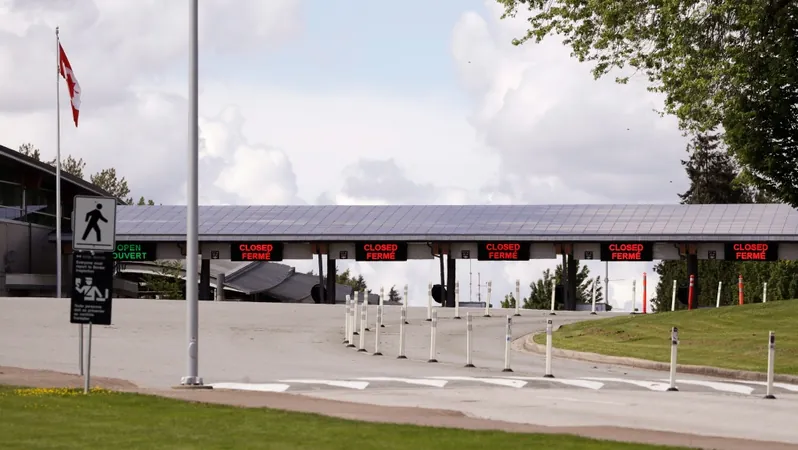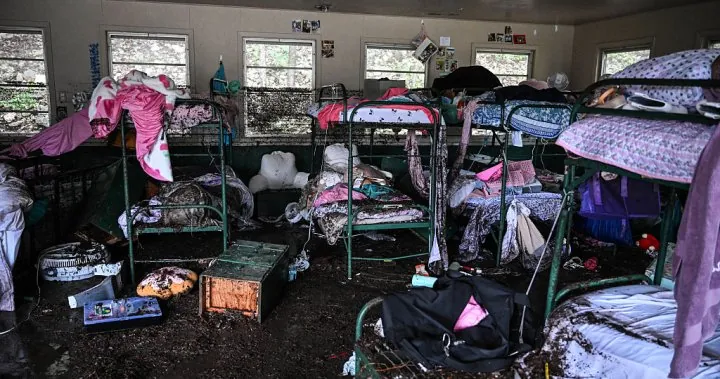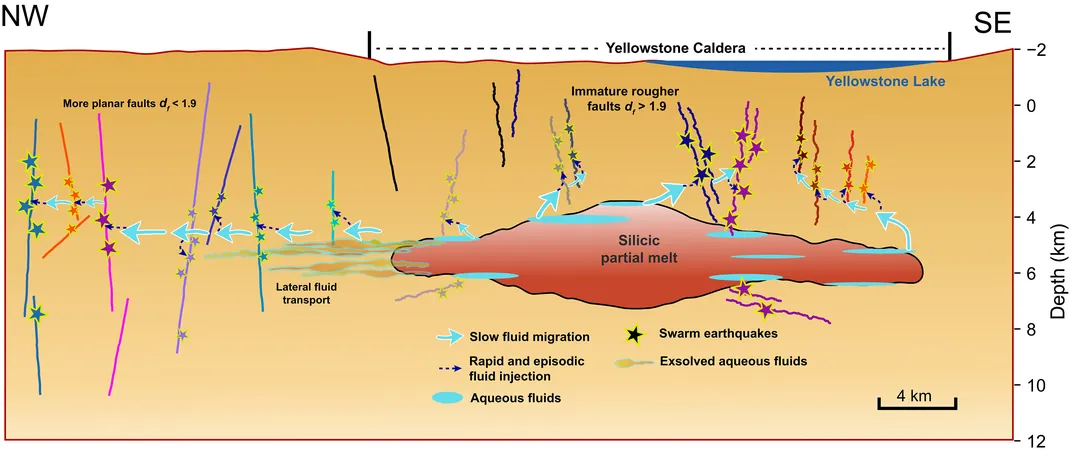
Major Changes to Canada's Temporary Visa Process: Is Your Work Permit at Risk?
2025-01-05
Author: Jacques
Major Changes to Canada's Temporary Visa Process: Is Your Work Permit at Risk?
In a significant policy shift, Canada has officially closed the 'flagpoling' loophole, a popular method for temporary residents to quickly obtain work or study permits. This change, implemented by the Canada Border Services Agency (CBSA), requires all visa applications to be processed through Immigration, Refugees and Citizenship Canada (IRCC) rather than at the border.
Flagpoling, a term derived from the flag poles at the Canada-U.S. border, allowed individuals to obtain visas by briefly exiting Canada and re-entering, thus bypassing lengthy processing times associated with traditional applications. Immigration expert Chris Brown from Tudor House Immigration Services in Vancouver highlighted how vital this process was for many of his clients. 'When employers find a suitable candidate, they could previously expedite their visa right away through flagpoling,' he explained. 'Now, applicants may face an extended wait of an additional three to six months.'
This change is particularly concerning for industries in Canada, such as hospitality and construction, that rely heavily on foreign workers. Employers might now see delays in hiring that could ultimately affect their operations. As noted, the average processing time for a work permit as of December 31, 2024, was already 156 days, and the new changes will exacerbate existing backlogs. Brown raised an important question: 'What happens if the job is no longer available by the time the application is processed?'
The closure of the flagpoling option was framed by the CBSA as a measure to enhance border security and efficiency, pointing out that this practice consumed significant resources, diverting officers from crucial enforcement duties and causing longer wait times for all travelers. Federal Immigration Minister Marc Miller emphasized that ending flagpoling will streamline processes and alleviate congestion, allowing officers to focus on critical border safety tasks.
While this new policy may seem restrictive, there are limited exemptions. The only individuals allowed to still obtain work or study permits directly at the border include U.S. citizens and lawful permanent residents, professionals and technicians covered under various free trade agreements, and international truck drivers holding requisite work permits. Additionally, those with pre-existing appointments for permit processing may qualify for exceptions.
As of now, the fate of thousands of foreign nationals hangs in the balance as they adjust to the new regulations. The CBSA’s decision to eliminate flagpoling has stirred concerns within the immigrant community, especially given the labor market's current demands. Employers and workers alike will need to navigate this new landscape carefully as they adapt to these pressing changes in Canada's immigration system.
Stay tuned as we continue to cover the impact of this policy shift on both the employment market and the lives of those looking to build their futures in Canada.









 Brasil (PT)
Brasil (PT)
 Canada (EN)
Canada (EN)
 Chile (ES)
Chile (ES)
 Česko (CS)
Česko (CS)
 대한민국 (KO)
대한민국 (KO)
 España (ES)
España (ES)
 France (FR)
France (FR)
 Hong Kong (EN)
Hong Kong (EN)
 Italia (IT)
Italia (IT)
 日本 (JA)
日本 (JA)
 Magyarország (HU)
Magyarország (HU)
 Norge (NO)
Norge (NO)
 Polska (PL)
Polska (PL)
 Schweiz (DE)
Schweiz (DE)
 Singapore (EN)
Singapore (EN)
 Sverige (SV)
Sverige (SV)
 Suomi (FI)
Suomi (FI)
 Türkiye (TR)
Türkiye (TR)
 الإمارات العربية المتحدة (AR)
الإمارات العربية المتحدة (AR)